Southerners, including in particular Sicilians, Corsicans and Sardinians, are said to always carry a pocket knife. But what do Häusgen, knives, Sardinia and especially Arbus, where we are right now, have to do with each other?
Knives in the Bergisches Land
"The stone sharpens the knives, but is itself dull."
If this quote did not come from Italy, it could be located in the Bergisches Land. The region of Germany, where all houses find their origin. According to legend, various small iron ore deposits have been mined there since the 10th century.
The Bergische Heimatlied begins with the words: "Where the forests still rustle, the nightingale sings, the mountains tower high, the anvil sounds. - Smoking chimneys, hammers, flaming forges and the roar of wheels are also an important part of the lyrics.
The first-mentioned forests, i.e. the abundance of wood in the area, provided the second raw material for the iron industry. In the Bergisch region, where the iron was originally forged by hand and the grindstones moved by human power, water-driven hammers and so-called grinding huts were developed from the 16th century onward. These then took over the laborious work.
Knives, cutlery, hunting knives - cutlery made in Solingen is still world famous today. In contrast, the neighboring town of Remscheid, Marc's birthplace, is primarily known for sharpening rods, files and tools. Although there is no longer any talk of "Wo die Schwert man schmiedet dem Lande zur Wehr," armored chains are still manufactured here.

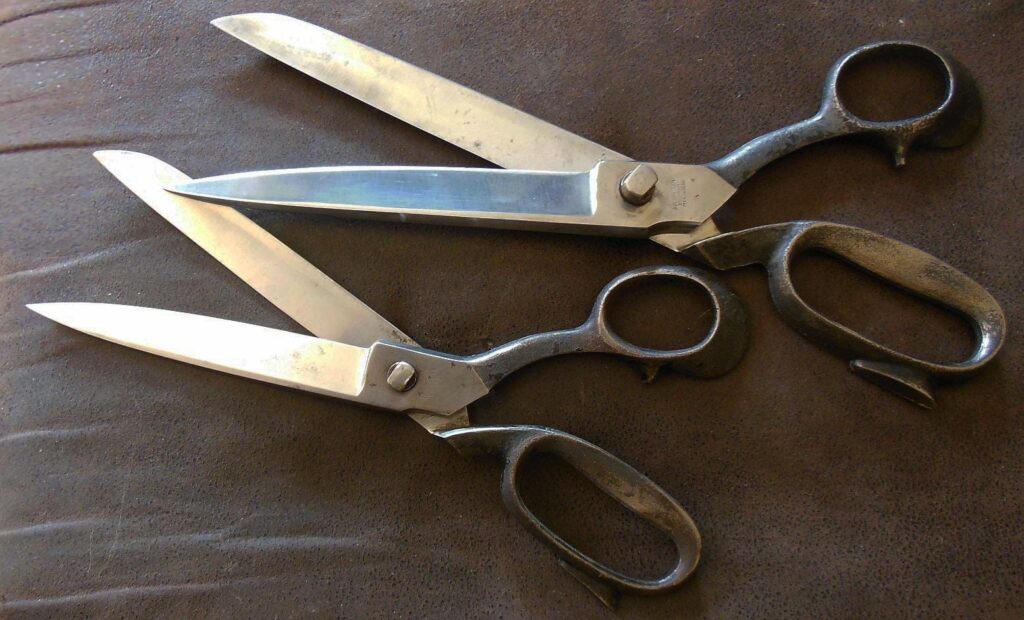
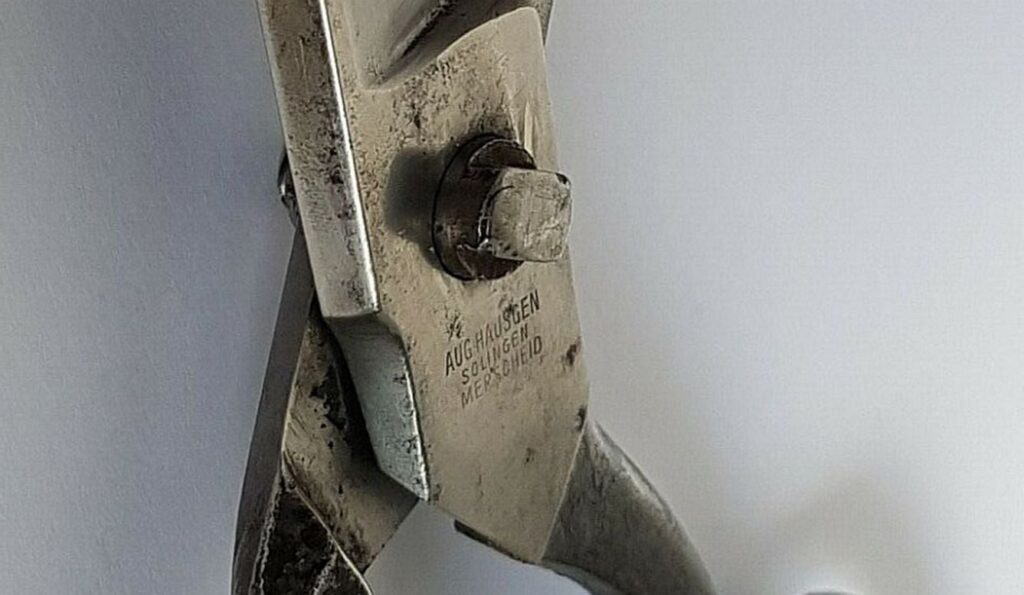

The knives of Häusgens
So it is certainly not surprising that every young Bergisch man is born with a certain affinity to the iron trade. Father Häusgen never left home without his Swiss Army knife. Torgit also used to carry a Swiss Army knife in her backpack, whether she was riding her bike to the office or hiking. I wonder if she was also aware that the first Swiss Army knives did not originally come from Switzerland, but from the knife manufacturer Wester & Co. made in Solingen.
The theme of solidarity runs particularly deep with the family. If you research the subject of the Bergisch steel industry in more detail, sooner or later you will even come across knives, especially razors, but also cutlery with the Häusgen logo, or more precisely G+E HÄUSGEN WEYER-SOLINGEN, where Weyer is nothing other than a district of the Bergisch metropolis.
Although the page Solingen steel, which deals primarily with razors, is characterized by a photo with Häusgen scissors, cutlery and razor, you will find products of this brand in vain. If products of this brand fall into the hands of the owner of this site, my namesake Häusgen, Rainer Häusgen, they will be added directly to the family treasure.
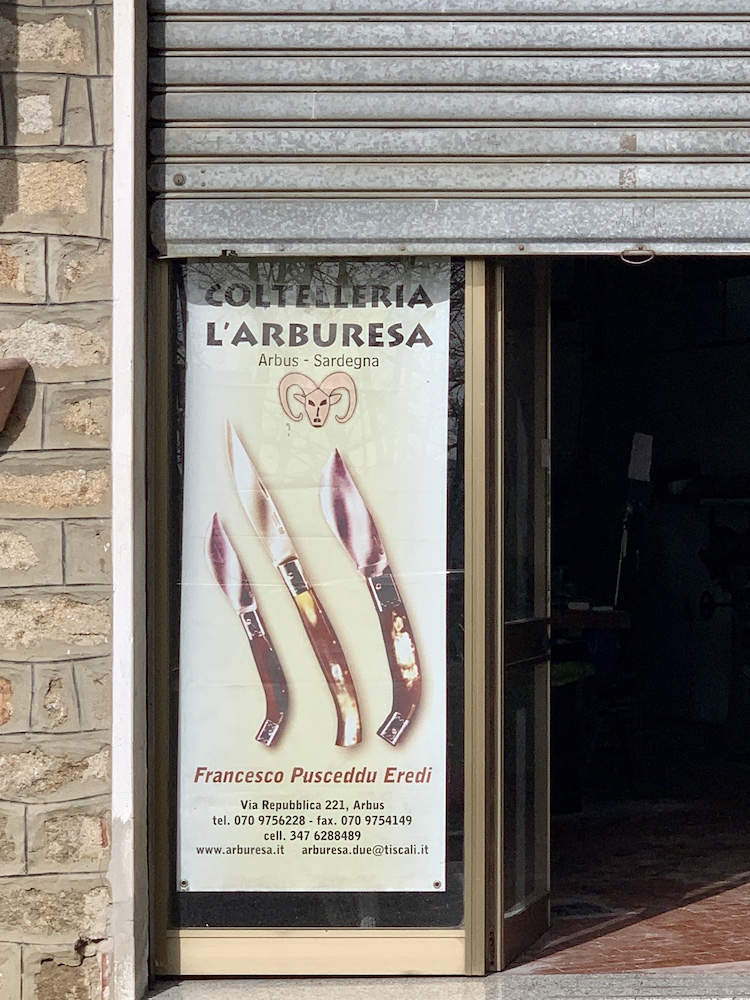
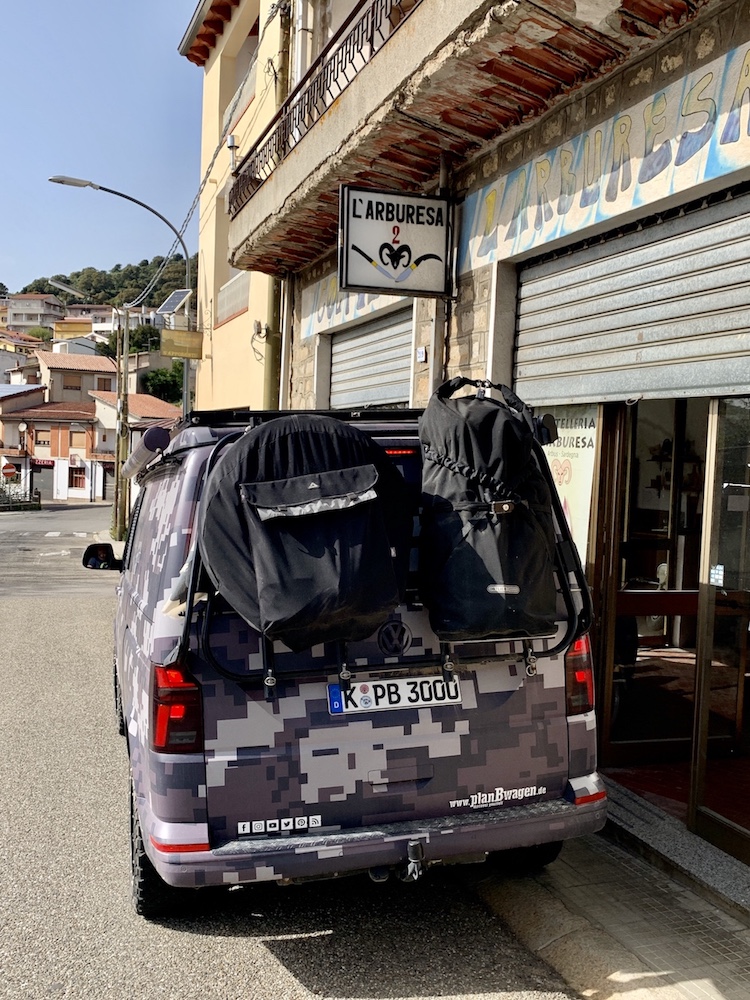
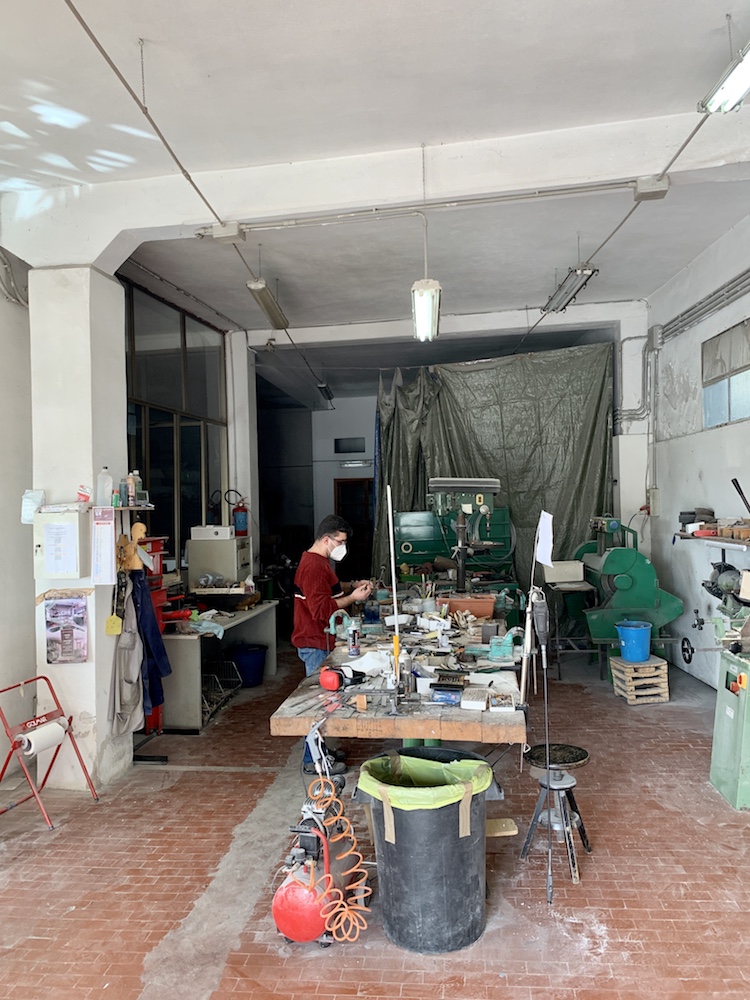
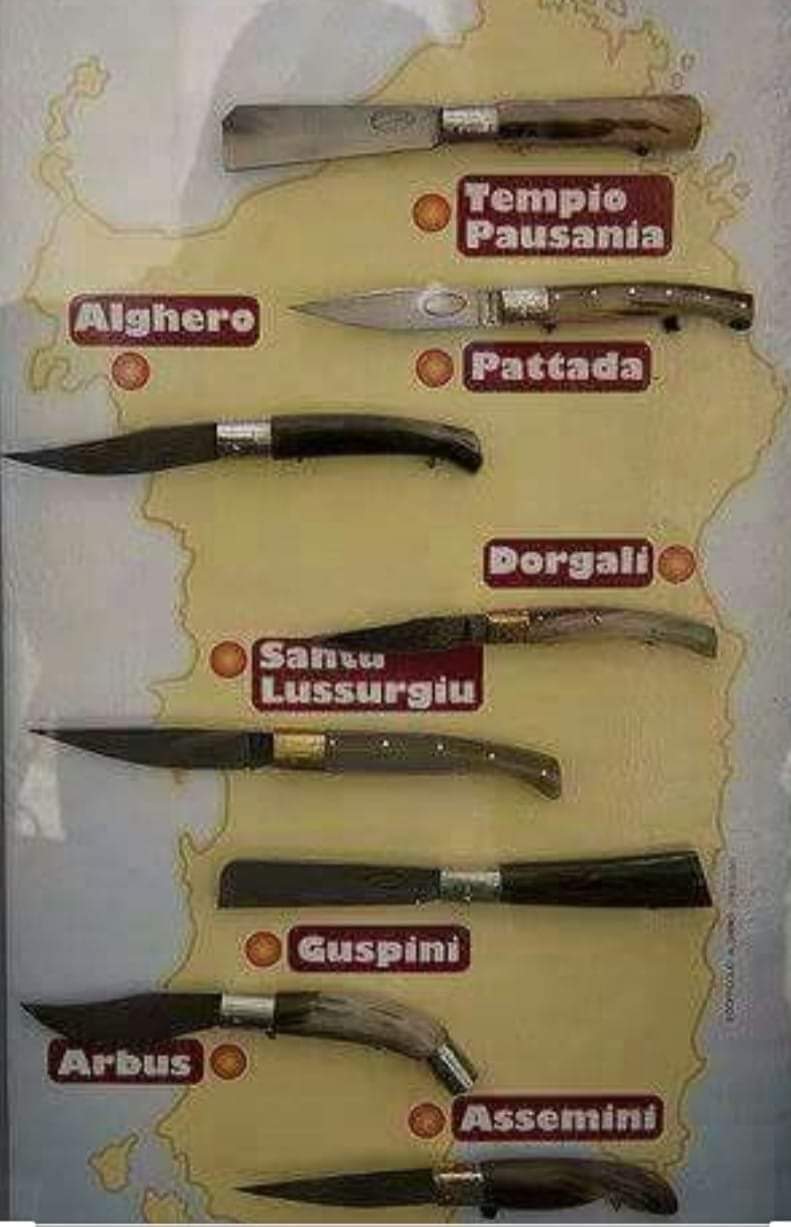
Marc's knife
But with Marc, at the latest, you would think that the bond in matters of knives has taken a deep stab. As a young guy, he poked his eye out when opening a crown cork on a Coca-Cola bottle. But what can I say, he likes Coke too.
Nevertheless, I found it surprising that when I met him, he had an extensive knife collection. Among them various Laguiole, from the French Auvergne, and Opinel, from the French Savoy.
Also fin and rag knives. One of them handmade, following the example of the seed knives from reindeer horn, leather, bone and birch wood dried forever itself. The blade came from the Swedish town of Mora.
The art of blacksmithing also has a long history in Sweden. Johann Abraham Dinger plays a not insignificant role in this. Doesn't sound Swedish at all? No wonder, since this blacksmith was of Solingen origin. He not only boosted the local steel industry and forged knives, he even coined the city's coat of arms, which with its colors, including hammer and anvil, could also have come from the Bergisch region.
Of course, since Marc was in Corsica, no typical Corsican knife was missing.
The collection of our Solingen Güde chef's knives also increased from year to year. We were in Bali, clearly there had to be a Balinese knife forged between the feet of its creator. In the end, it was directly several knives. Japanese chef's knives, of course, could not be missing.
When I took any of Marc's suits to the cleaners, I almost always found some pocket knife in the inside pocket. Surprising?
Sardinian knives
But back to the present, back to Sardinia:
Hand forged knives have a long tradition in Sardinia. And especially folding knives. They can be folded out, but not locked. Since the beginning of the 17th century, when there were sanctions against open knives with fixed blades, the folding knife became an indispensable tool for farmers, shepherds and miners.
Today, the Sardinian shepherd's knives are small works of art. Collectors' items in limited editions quickly cost several hundred euros.
The blade is made of stainless steel and the curved handle is made of mouflon horn. The unique grain and color of each handle are different, so each knife is unique. Unless you buy it in a tourist store on the coast. Because here, too, Made in China has found its way.
Thus, the Sardinian knife industry is just as much on a knife edge as that in Laguiole. Even young Sardinians today carry an iPhone more than a pocket knife in their pants pocket.
If you're interested in this craft, you'd better stop by Coltelli di Pattada or, like us, Coltelleria L'Arburesa di Francesco in Arbus. Instead of a machine-made knife, you still get real handwork here. Who likes, gladly also with decorated blade. These are unique pieces. Accordingly, they are not cheap. Solid craftsmanship has its price, but is still inexpensive by German standards.
Many thanks to Federico Meloni and his Facebook group 'Sardinia - Land, Culture and People' for the tip and the map with the cutlers.
There is also a small knife museum in Arbus. We overlooked this on our first visit. I think we have to go there again 😉 .

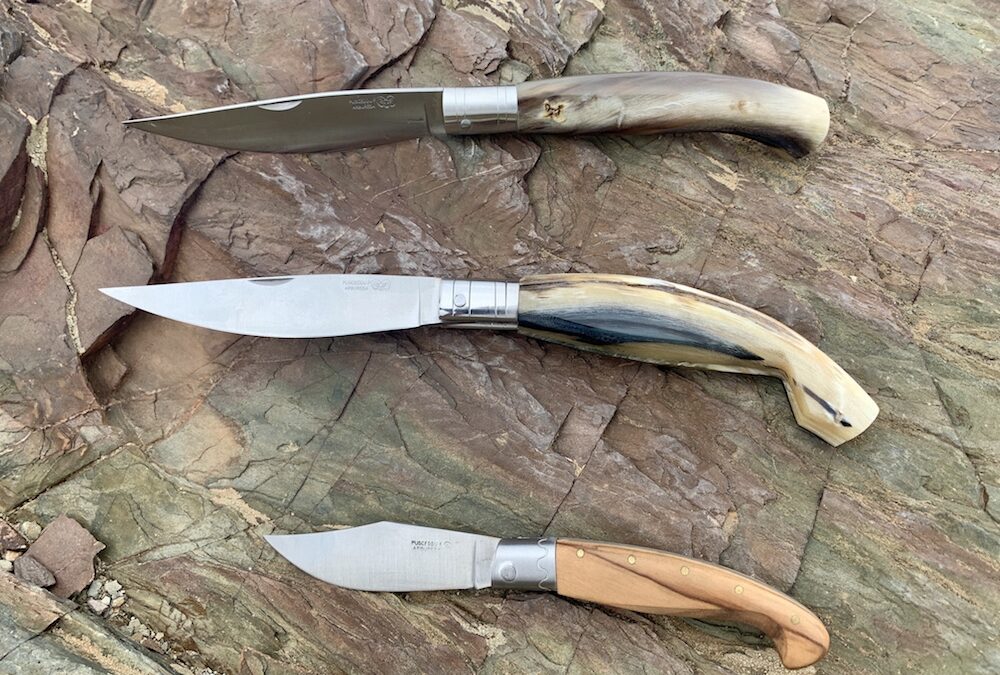

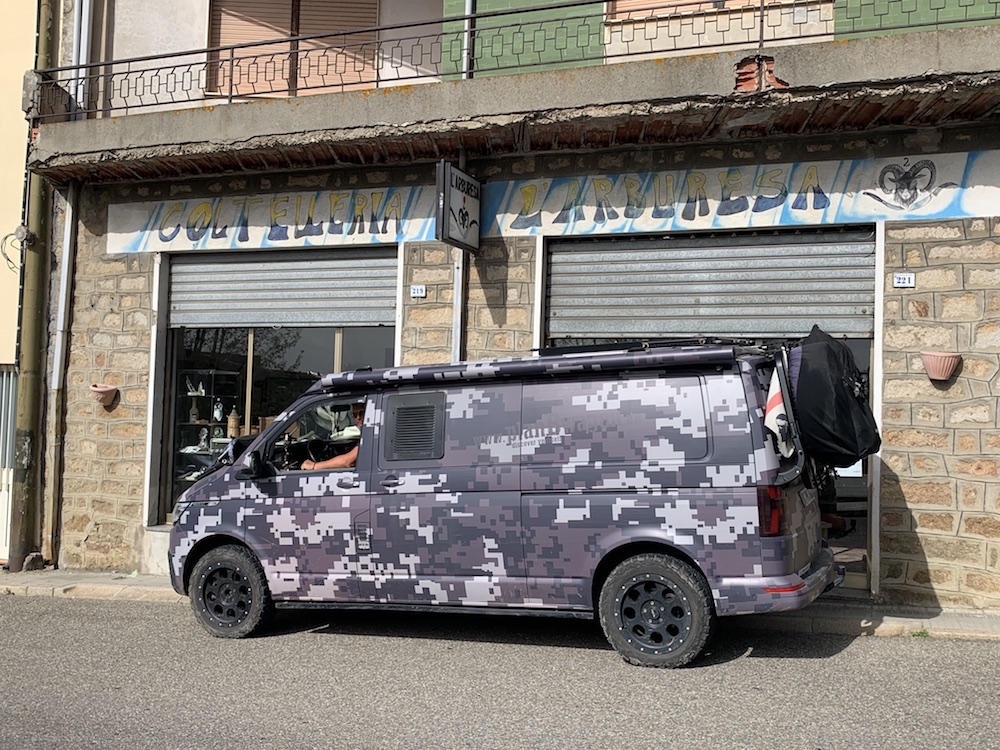
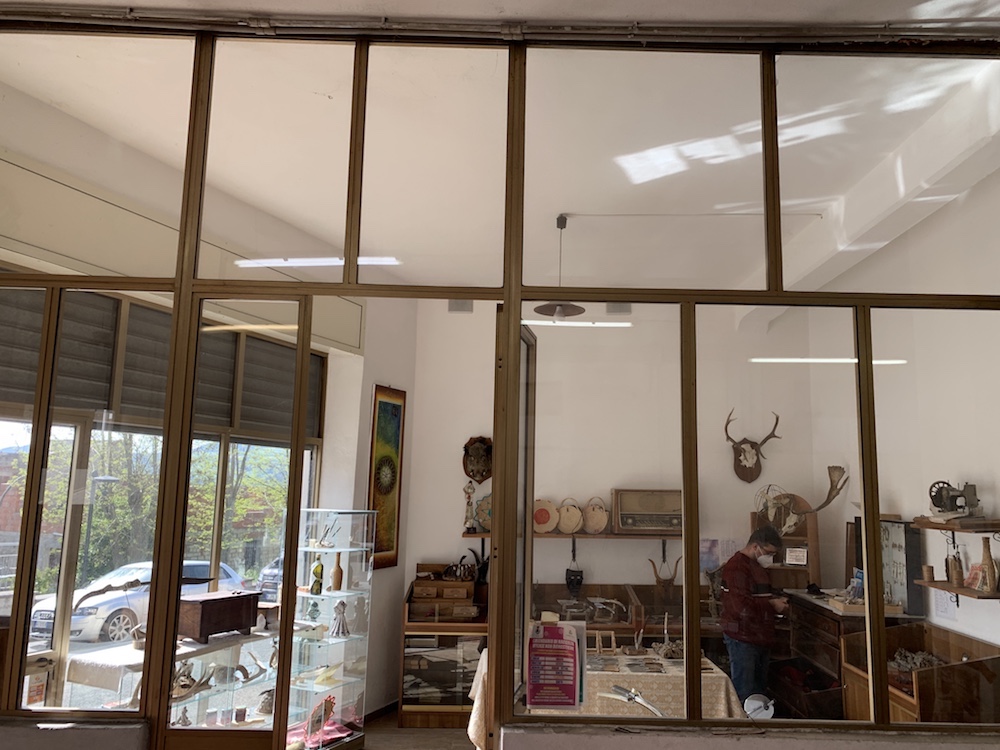

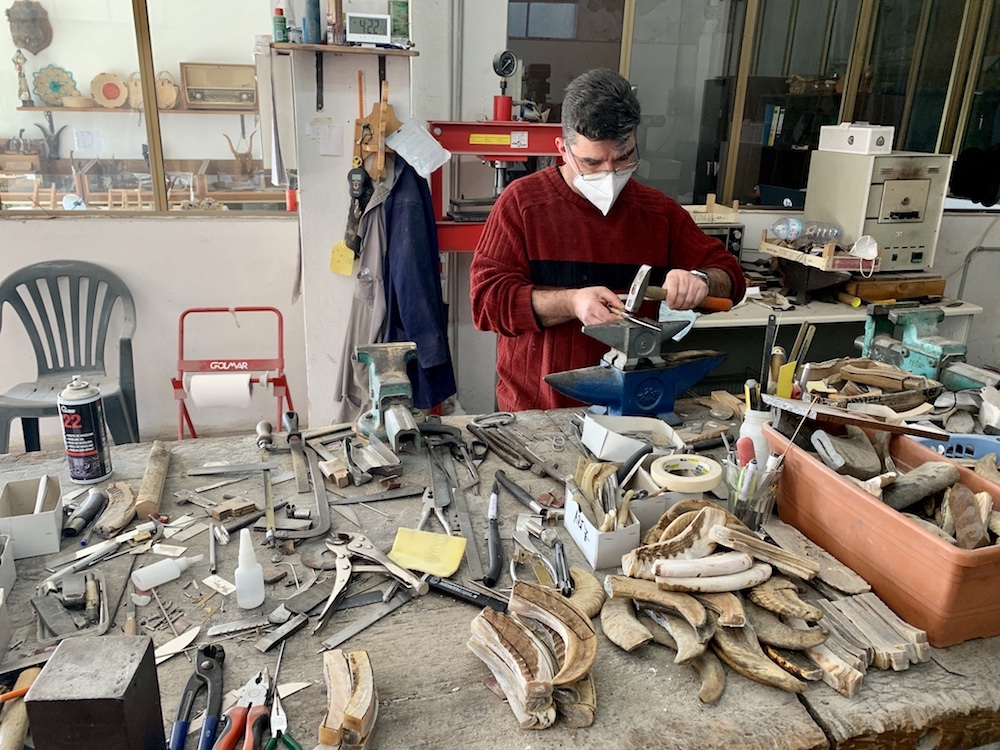
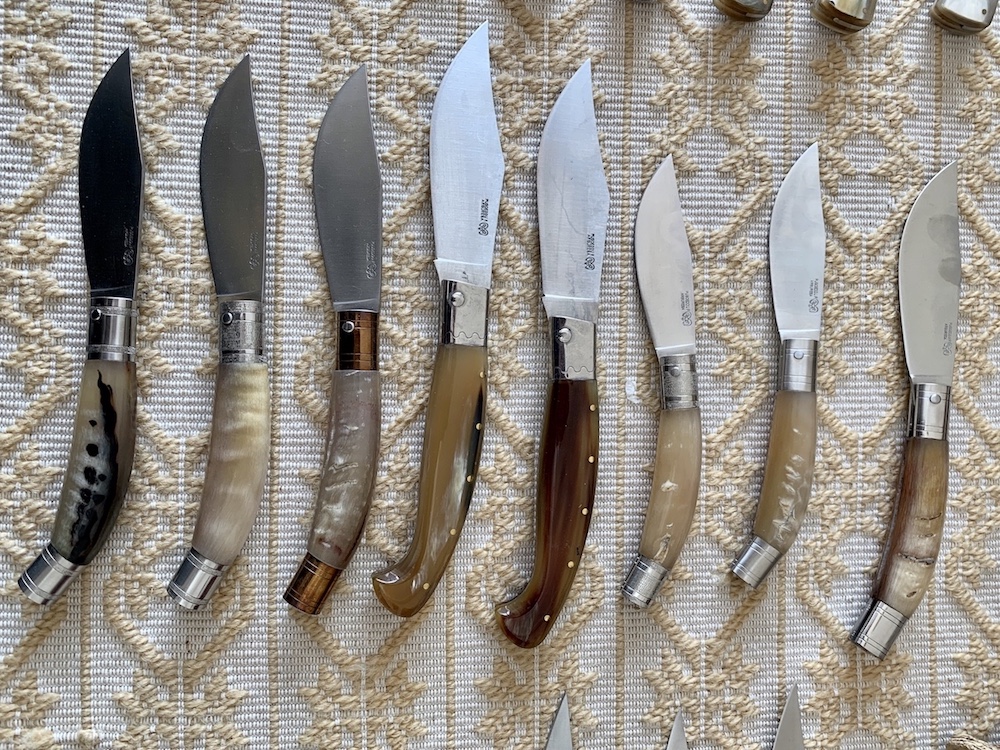
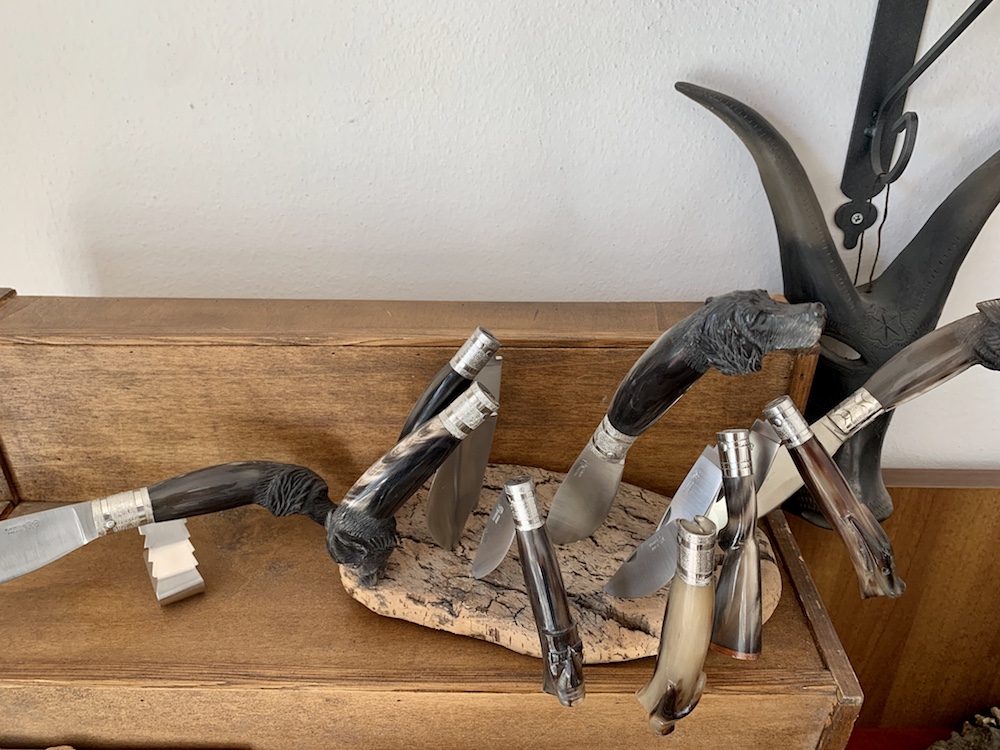
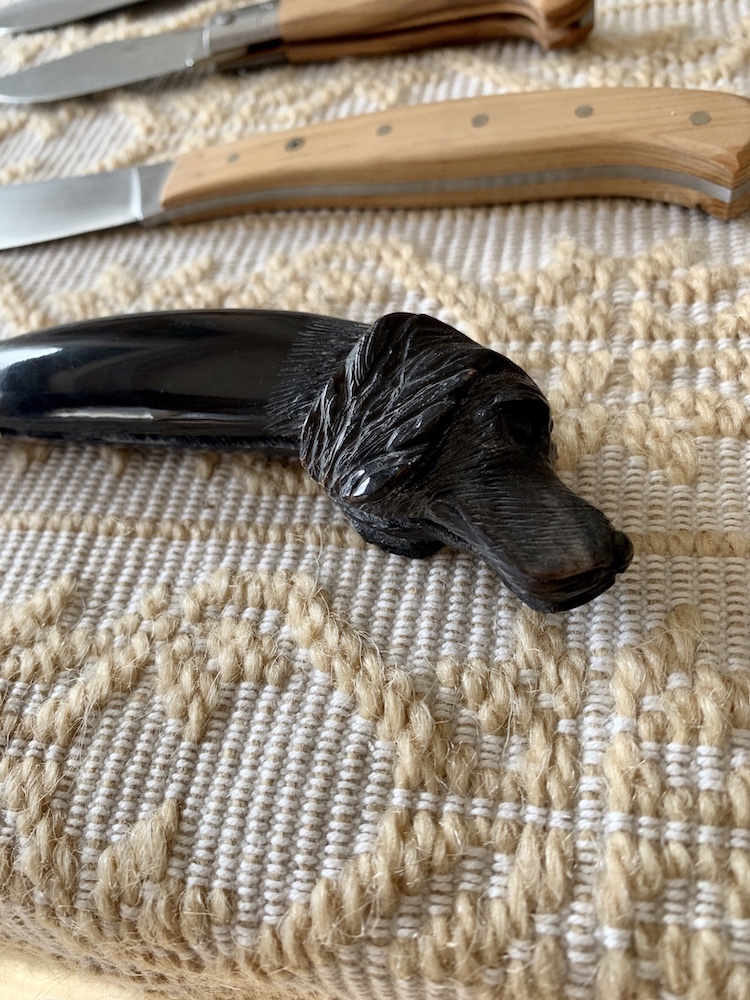
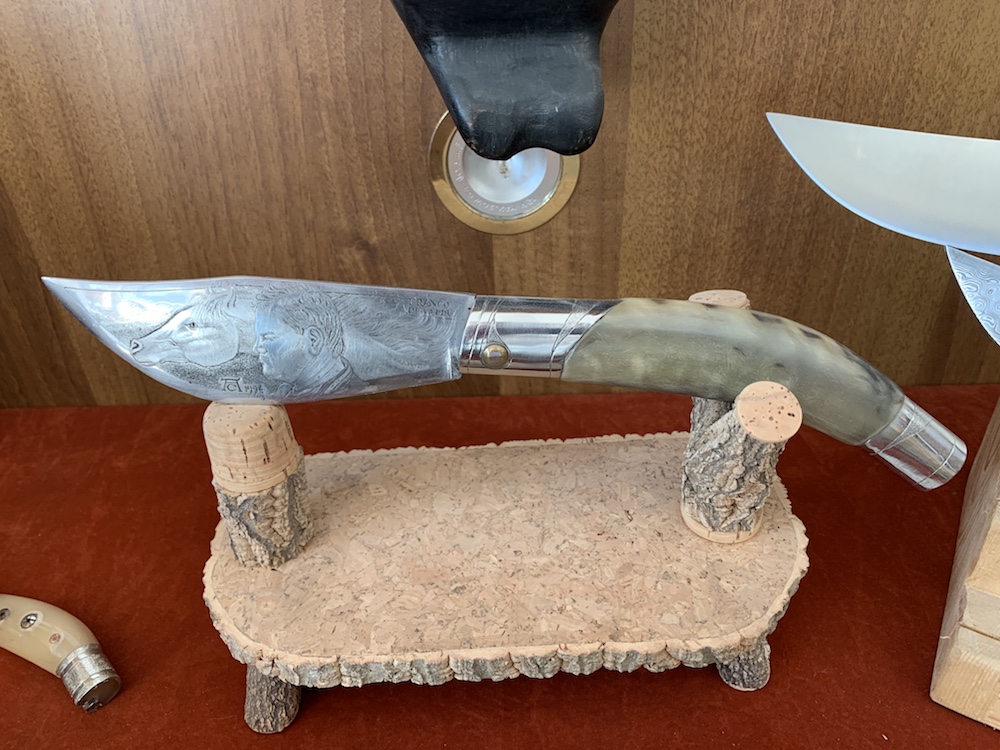

Beautiful travelogue ...just my taste... mine would probably sound similar...! 😉
The desire and addiction for sharp steel goods is probably in the blood of every HÄUSGEN, no matter where he lives today, because his roots always come from Solingen, according to genealogical evidence.
Our ancestors Gustav & Ernst H. , Ferdinand H., Wilhelm H. and August H. had from the 1850s until the 1930s their own manufacturing plants for table knives / cutlery, pocket knives and razors, mostly as usual in the backyard cottage. My father still made dies for scissors, I was not able to do an apprenticeship in this trade in the 1970s as it was already in decline. Although my junior still learned the family tradition at DREITURM, he was not taken on by the financially weak company. The number of once well over a thousand cutlery businesses in Solingen can now be counted on the fingers of two hands. Unfortunately, a lot of expertise and tradition dies with it.
The more beautiful to read here that the family HÄUSGEN identifies itself nevertheless further with it !
LG from Solingen - Rainer Häusgen (SolingerStahl)